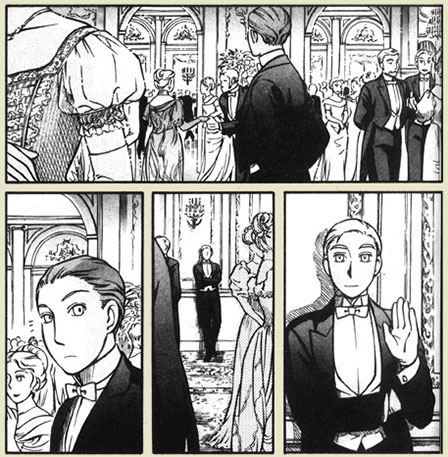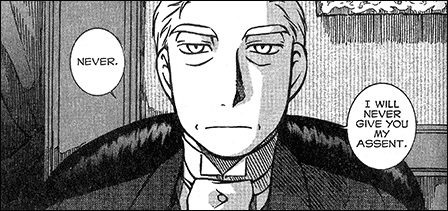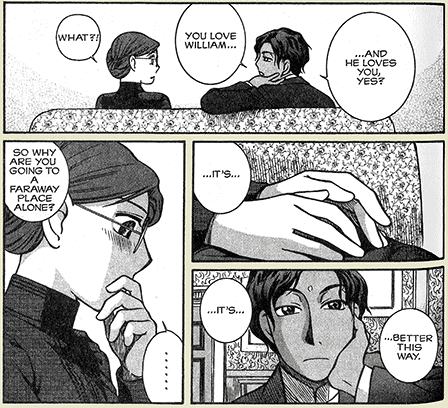Emma
I am officially on-board for any of Kaoru Mori's future projects. The author's zeal for the era of her focus is blindingly evident and her rendering of its particulars exhibits such attention and joy that it's hard not to get swept up by the objects of her affections. Let's be clear. In real life, I have no interest either in late-19th-century Britain's class disparity or in maids. Yet due to Mori's work here, I was absolutely engaged for the whole seven volumes, finishing them over the course of a day. If she decides to write something further on the matter, I'm certain to be drawn in again.

Mori's storytelling is impressive. The weight of her line perfectly suits her subject matter; it's crisp and confident. She excels at choosing setting, pace, and moment, giving her characters the opportunity to reflect on actions, words, or thoughts from prior panels and pages. As well, Mori includes any number of silent scenes, allowing the reader to pause and take in the full scope of what is occurring within the more introspective parts of her characters stories. Keeping the reader involved, Mori uses a number of visual devices, requiring one to pay attention to camera angles and character details. The storytelling occurs as much through visual relief as it does through verbal narrative and dialogue.
Emma is chiefly the story of Emma and William, an orphaned household maid and the son of the monied class. This is a romance and we see them meet-cute, fall for each other in that stereotypically understated Victorian way, encounter difficulties due their class distinctions, and finally resolve their relationship. It's a lovely little story.

As Emma is the story of two principles, Mori leaves every other story untold. While William and Emma's story finds its resolution, a reader could easily become frustrated with the many loose ends Mori leaves untied in her supporting characters' regard. Personally, I found this abandonment of other characters charming and felt their untold stories just added to the book's wonder. Because of Mori's reluctance to end all stories with the conclusion of Emma and William's story, she keeps Emma from being yet one more example of contrived romance.
That said, I am thirsty to know more of the lives of the other characters. Eleanor. Hans and Adele. All of the Jones family. More, more, more. Please.

Good Ok Bad features reviews of comics, graphic novels, manga, et cetera using a rare and auspicious three-star rating system. Point systems are notoriously fiddly, so here it's been pared down to three simple possibilities:
3 Stars = Good
2 Stars = Ok
1 Star = Bad
I am Seth T. Hahne and these are my reviews.
Browse Reviews By
Other Features
- Best Books of the Year:
- Top 50 of 2024
- Top 50 of 2023
- Top 100 of 2020-22
- Top 75 of 2019
- Top 50 of 2018
- Top 75 of 2017
- Top 75 of 2016
- Top 75 of 2015
- Top 75 of 2014
- Top 35 of 2013
- Top 25 of 2012
- Top 10 of 2011
- Popular Sections:
- All-Time Top 500
- All the Boardgames I've Played
- All the Anime Series I've Seen
- All the Animated Films I've Seen
- Top 75 by Female Creators
- Kids Recommendations
- What I Read: A Reading Log
- Other Features:
- Bookclub Study Guides










